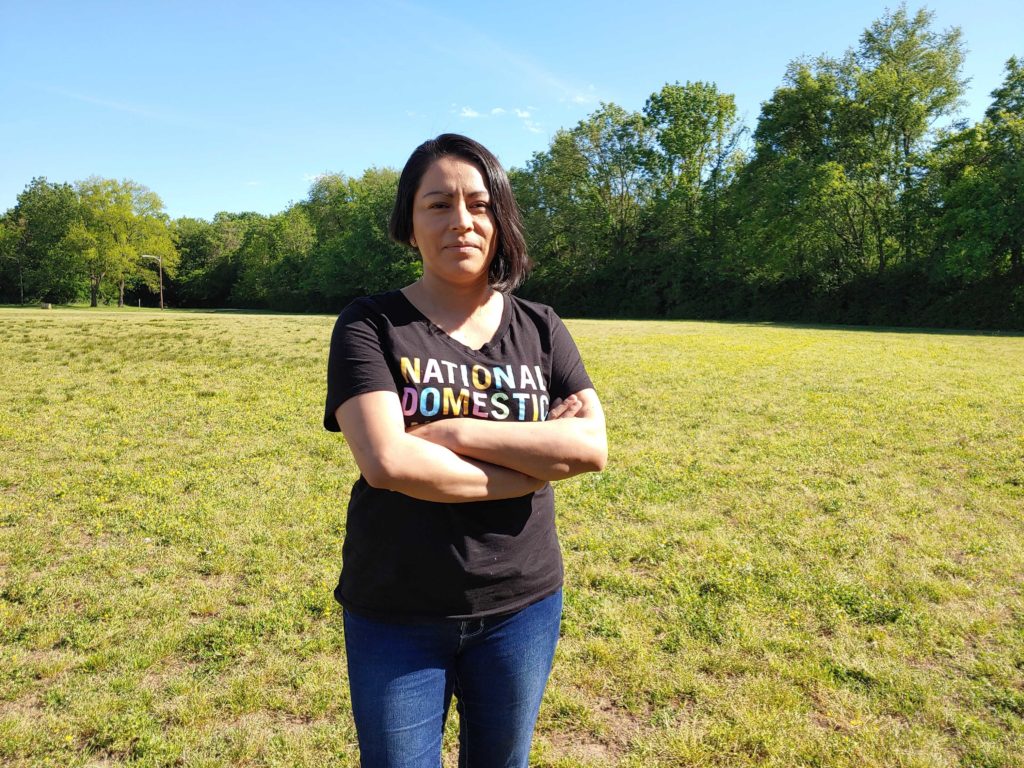
Six months ago, Karina Hernández was beginning to see her job prospects as a domestic worker disappear.
She told WPLN News then that she had been without a job for months. She was having a hard time.
A few weeks ago, in typical pandemic fashion, she shared news over a Zoom call.
“I’m pregnant,” Hernández says in Spanish.
She’s extremely happy having her first child on the way. But she also feels the stress building up — this pandemic has been brutal for her and many of her colleagues.
“It has affected me a lot, since I don’t have my job any longer,” Hernández says.
And it has gotten tougher. In terms of work, she is still pretty much jobless. Sometimes a gig to clean a home will come in. But, for the most part, she remains unemployed.
Sporadic aid from nonprofits is the main thing keeping her afloat.
Many in her industry have been jobless since the virus first hit. Hernández is one of the 2.2 million maids in the country. And the pandemic has tanked the industry, which is made up largely of immigrant women. According to the Domestic Workers Network, by March, 90 percent of the workers lost their jobs due to COVID.
But the women have found a way to support one another and push for policy changes. To cushion future blows, maids and other domestic workers in Tennessee have started to organize.
Leticia Alvarez is overwhelmed too. She leads the Domestic Workers Network within the Tennessee Immigrant and Refugee Rights Coalition.
But she notes there has been a blessing in disguise during these difficult months.
“The pandemic, fortunately, gave us this opportunity to highlight the profiles of these women who are part of a forgotten industry, an invisible industry,” Alvarez says.
In Tennessee, most domestic workers — which also include nannies — do not have benefits. And because many are undocumented, they have not been able to qualify for stimulus help.
“They have raised our kids, they have, at times, raised us,” Alvarez says. “From there, they retire, get old and have no benefits.”
So, the workers have organized, and the network is growing. It has gone from 150 members when the pandemic started, to about 700 by December.
Their strategy is to lobby local governments to pass resolutions in support of them. And they hope that on the state level, they’ll be able to make some moves next year — especially with identification laws.
“We domestic workers take a risk every day when we drive,” says Dey, a 45-year-old house cleaner who is using a nickname out of fear of losing future work.
She says she hopes the state will allow undocumented people to get driver’s licenses.
That’s an uphill battle. But she says domestic workers risk everything just trying to get to work.
Dey hopes politicians show empathy and understand that they are part of the state’s economy.

